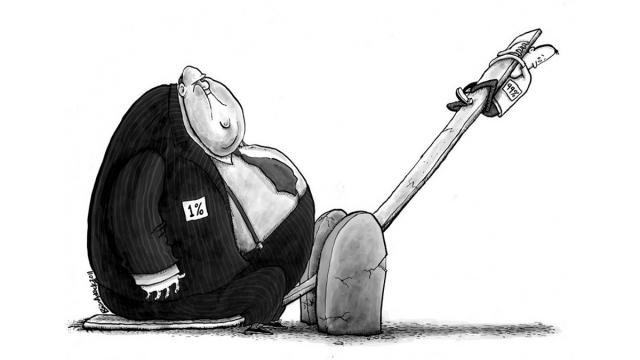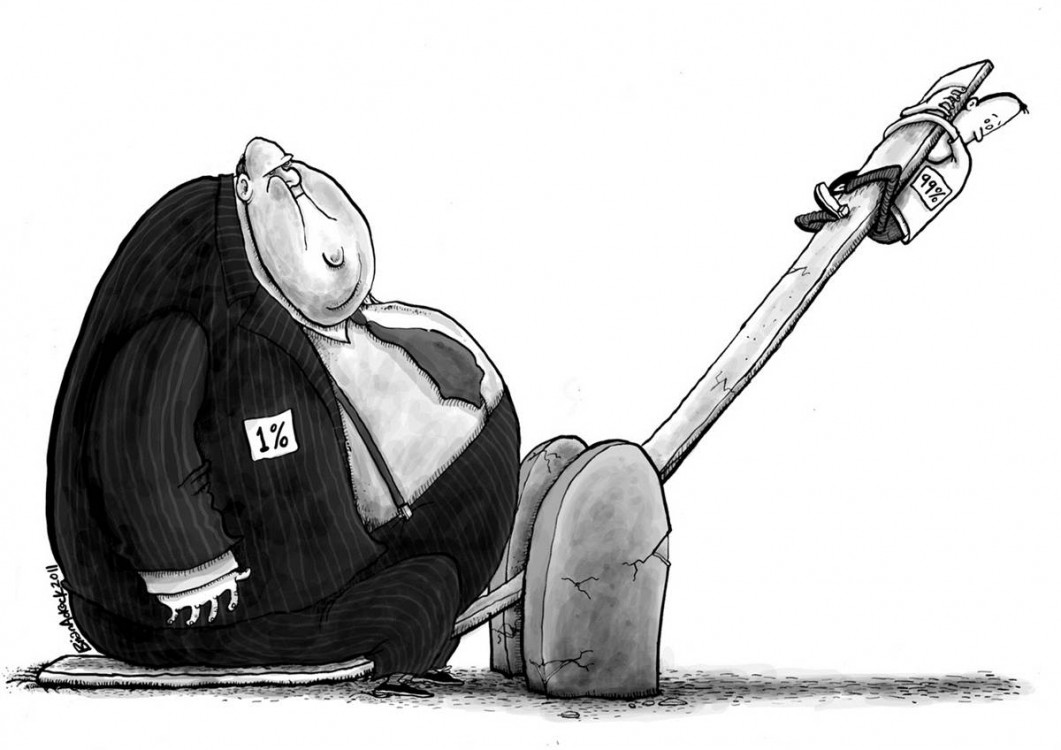
In the wake of the assault on Charlie Hebdo, a British-born, Paris-based intellectual named Andrew Hussey used the term “totalitarian democracy” to describe French society. Hussey didn’t invent it, though he sounded at home using it. The Israeli historian J. L. Talmon seems to have coined the term in his 1952 book, The Origins of Totalitarian Democracy," which argued that communist and fascist societies didn’t have a monopoly on totalitarianism and that so-called democratic societies often aimed to have total control over their citizens.
Talmon might have been riffing on George Orwell’s novel 1984, published in 1949, in which Big Brother and his all-powerful state abrogate individual rights, wage total warfare around the world, employ torture and manipulate the human mind itself.
The poet and publisher Lawrence Ferlinghetti used the phrase “Totalitarian Democracy” in a poem that ends with the lines, “The last lament for lost democracy,/ The total triumph of/ totalitarian plutocracy.”
In the 1960s, Herbert Marcuse argued that the “free election of masters does not abolish the masters or the slaves,” and that even liberty itself “could be made into a powerful instrument of domination.” The term he coined to describe the phenomenon was “repressive tolerance.”
That condition seems to operate in France, where citizens elect representatives, where they still cry out “Liberty, Equality and Fraternity” and where they are under increasing domination by the state, especially if they are Muslims and poor. Much the same situation exists in the United States today, where citizens go to the polls to vote, and where they evoke the Declaration of Independence and the First Amendment, and where they are more and more under the thumb not only of the state but also of corporations and the mentality of right-mind mobs and demagogues.
As Jean-Jacques Rousseau noted in the 18th century, “Man was born free and he is everywhere in chains.”
The fact that Andrew Hussey, one of the most astute political observers and authors, used the term just the other day suggests that it is as relevant now as it has ever been and perhaps even more so. Indeed, we might begin to use it to describe the United States, where citizens are increasingly disenfranchised, where oligarchs pollute the waters of democracy, where state and federal governments as well as corporations are more and more secretive, and where citizens are increasingly in the dark and increasingly powerless.
I had my own taste of totalitarian democracy during the War in Vietnam, when I was under surveillance by the FBI and the CIA, when fellow protesters were shot, killed and incarcerated and when I was arrested and even tortured. Totalitarian democracy seemed to have arrived on American shores.
Optimists might argue that Ferlinghetti’s and Hussey’s and Orwell’s view is too bleak a view. They would point to vigorous protest movements that exist across the country and to the existence of magazines, blogs, and newspapers that decry the corporate order and the American oligarchy. They would have a point.
Still, the larger drift seems to be toward greater and greater concentrations of wealth and power, and greater and greater loss of rights and freedoms by citizens, especially if they are citizens of color and poor. Torture and drones look like they’ll be around for the foreseeable future. Poverty looks like it’s entrenched.
As the French economist Thomas Piketty showed in Capital in the Twenty-First Century, the global trend is toward more social and economic inequality, with the rich getting richer and the poor getting poorer and more political power deriving from wealth. The Occupy movement made much the same argument when it pointed to the disparity between the 1% and the 99%.
Piketty argued that social inequality might be worse in the twenty-second century than it was in the nineteenth-century, which gave rise to riots and revolutions, Marxism and communism.
Today, the challenge for believers in true democracy – and in the power of ordinary citizens organized in groups – is to figure out how to operate in the new totalitarian democratic order that exists in the U.S.A., in France, in Russia and everywhere that citizens vote and have little or no power over their own lives.
The 1% has no intention of giving up its wealth or its power. It will do anything and everything to hold on to what it has and to use any means to prevent citizens from enjoying life, liberty and the pursuit of happiness. The challenge facing us is well worth accepting.
We have our chains and our mind-forged manacles to lose and a world to win.
3 WAYS TO SHOW YOUR SUPPORT
- Log in to post comments















